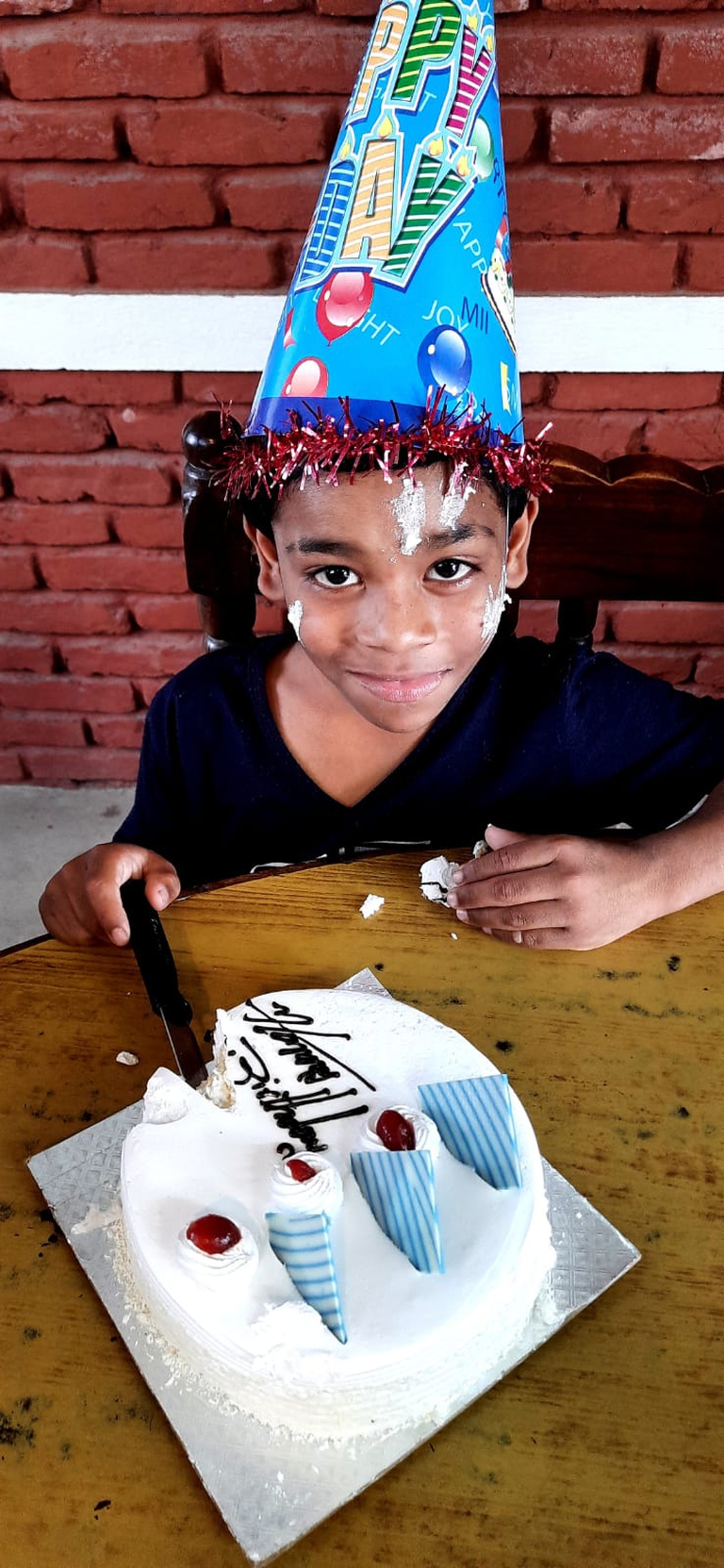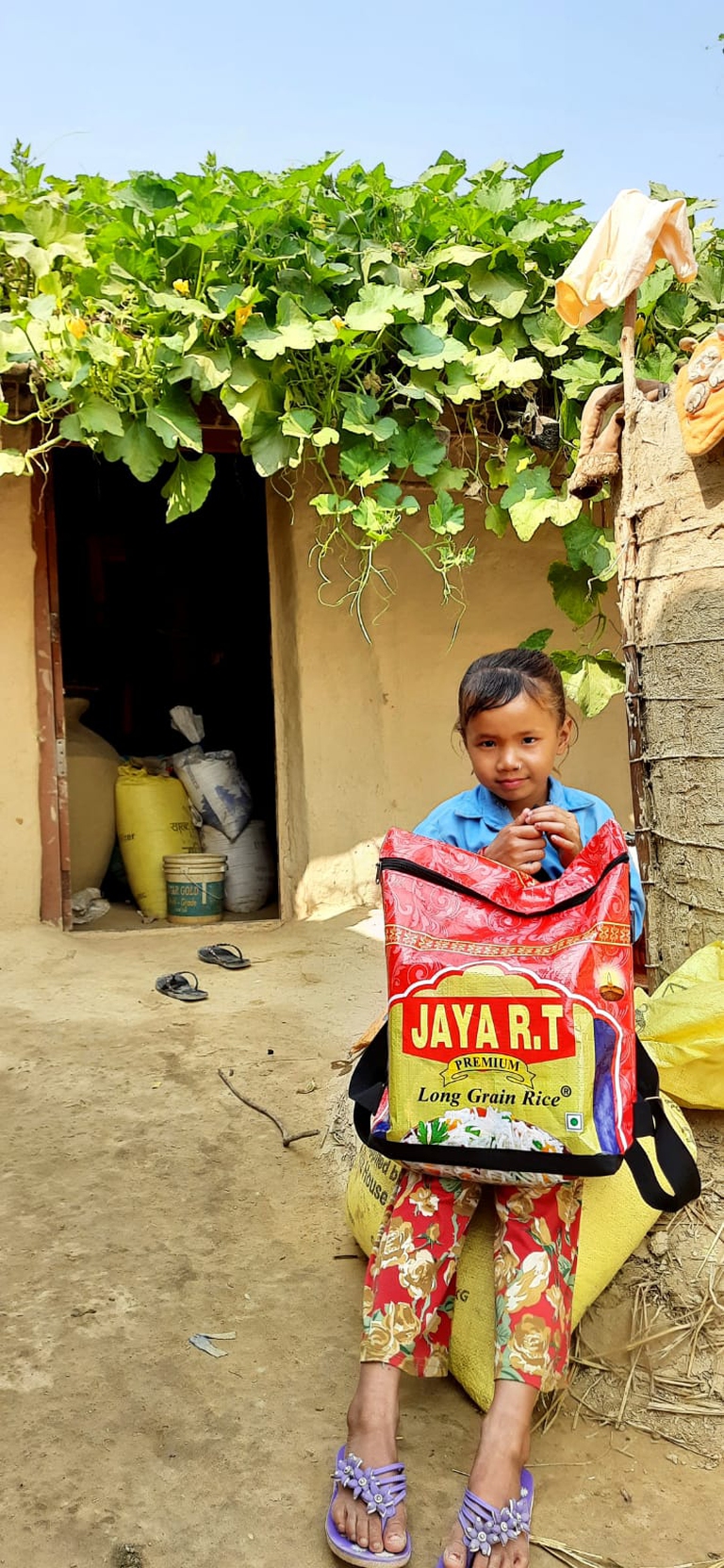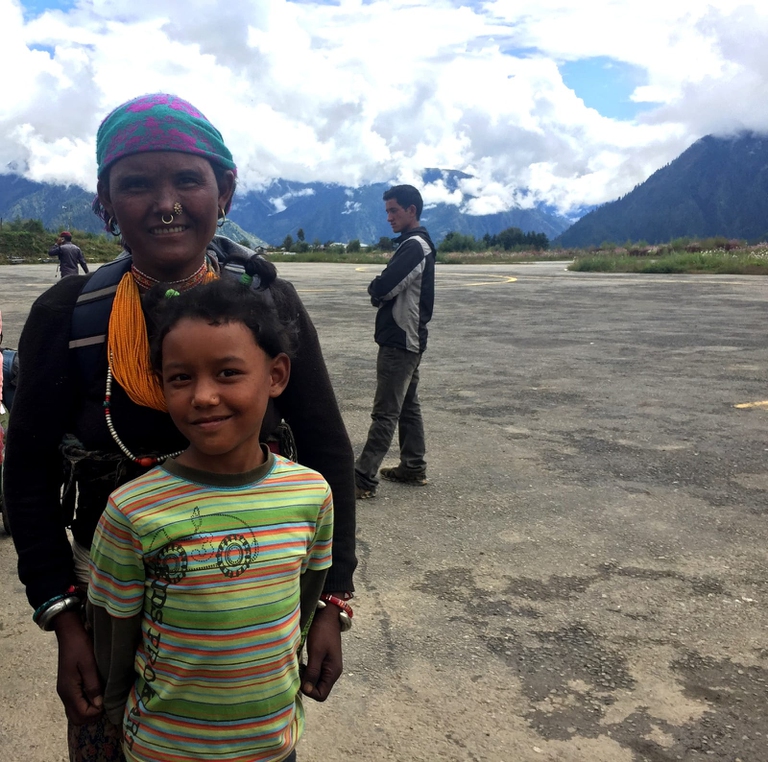
A new travelling exhibition, which is being shown in various parts of the Andean country Ecuador, seeks to make the important work of Ecuadorian women scientists visible. Because women need science and science needs women.
Meet Gokul Subedi and Prakriti Mainali, the founders of two humanitarian organisations with one shared goal: to improve the lives of the most vulnerable and disadvantaged members of Nepalese society.
It’s a warm Monday evening in Kathmandu, Nepal’s vibrant capital city. Husband and wife Gokul Subedi and Prakriti Mainali, who run their own bed & breakfast, are advising their guests on where they should go for a two-week trek in the Himalayas over a delicious and abundant plate of dal bhat, Nepal’s staple dish. Although Gokul and Prakriti have been working hard all day, they’re more than happy to discuss their life’s work with welcoming smiles and warm, contagious laughter.
Nepal is famous for being home to eight of the ten tallest mountains in the world, earning its nickname of “roof of the world”. However, it also faces deeply entrenched social problems that place a huge and unfair burden on the lives of the most vulnerable.
Gokul is the executive chairperson at Access, an “anti-child-slavery organisation that seeks to promote child rights amid the ever-growing incidence of modern-day child slavery,” he explains. Unfortunately, child slavery and child labour remain huge problems throughout Nepal. According to the International Labor Organisation, 1.1 million children in Nepal are victims of child labour.
Gokul explains that vulnerable families from the countryside are scammed and tricked into entrusting their children to strangers with promises of a better future in Kathmandu, in exchange for large sums of money. Once separated from their parents, many of these children are forced to work for no money and in miserable conditions. Aided by the Nepalese police, Access rescues the children and provides them with food and a transit home as well as counselling and healthcare. They then track down the children’s families so they can be reunited, an arduous task in many cases.
In parallel, in 2014, Prakriti and Gokul founded Shakti Milan Nepal, a social enterprise that produces upcycled bags made from used rice sacks. Prakriti, a founding member of Access, explains how the company started with “one woman and one machine” and has grown to employ 23 women full-time. The enterprise represents a unique opportunity for women to receive training and develop skills, empowering them to live independently within the community. Prakriti explains that women in Nepal always take a secondary role in decision-making processes, often lack basic human rights and aren’t given the same opportunities as their male counterparts, ultimately being deprived of an education and forced to work in the home and fields.
Gokul and Prakriti’s work has become even more vital during the Covid-19 pandemic as the poorest and most vulnerable families in Kathmandu have been affected the most. “In Nepal, nine months of Covid-19 lockdown [between March and November 2020, ed.] hit workers’ daily wages the worst. They earn just enough to survive,” explains Gokul. Many people depended on relief and food packages to survive the lockdown and its economic repercussions. We spoke to Gokul and Prakriti about their work with Access and Shakti Milan Nepal, respectively, and the impact these organisations have made on people’s lives.
Gokul, how did you get started with Access?
Gokul Subedi: I was fortunate to have people who really guided and trained me to work in this sector. In the beginning, I was working to empower community stakeholders on children’s rights and child protection issues, such as training schoolteachers to make schools child-friendly. I then shifted my focus to rescuing children from labour exploitation, sexual abuse and trafficking – effectively slavery. We started rescuing the children with the help of the Nepalese police in collaboration with a government agency.
What happens to children when they’re separated from their families?
GS: Nepal has a high rate of child separation. Separation is a psychological trauma for a child. Imagine a child from a remote part of Nepal living with their family and friends, running from one corner to the next. There’s scarcity, but the child is free and goes to school. Suddenly, the child is separated from their own community at the age of ten or eleven. They’re brought to the city. Just imagine, there are hundreds of people around them, they feel so lonely. This is a very traumatic process for the child to handle. When the parents come to know about the abuse and exploitation the children go through, they start crying, even on the phone.
Prakriti, could you tell us about the origins of Shakti Milan Nepal?
Prakriti Mainali: We started the social enterprise six years ago. I was born in this society and I understand people’s patriarchal mindset. I consider myself really privileged when I look at these women who are less fortunate. Being a woman is difficult and being an underprivileged woman is even harder. We started a social enterprise that empowers marginalised women through skilled involvement and specialised training to help them lead their lives independently within the community.
What kinds of issues do Nepalese women face?
PM: Nepal is a patriarchal society. Women are considered uneducated and are deprived of the possibility to develop the necessary skills for employment and forced into dependence on men. In some parts of the far western region of Nepal, the Chhaupadi system is still practised, requiring women to stay outside their house in a separate hut during menstruation. During this period, women aren’t allowed to go to the kitchen, touch men or even plants.
Furthermore, 1,500 young people a day leave Nepal to go to work in the Gulf states. This means that only women remain at home to take care of children and the elderly and work in the fields, making them very isolated. When they get married, there’s social pressure to take care of family affairs and their career comes second, something which is hindering women from reaching their professional potential.
What is the impact of your work?
GS: When we take a child to the transit home, we realise that they can’t trust anyone because of the violence they’ve suffered. They think that we might abuse them too. The separation itself is a shocking thing. Psychologically, they’re very traumatised and to get back to the normal life you need to provide proper care and counselling. You need to listen to them and connect with their families. The process of non-separation of children and the core idea of family unity is the only way out of poverty and the only solution to eradicate problems in rural Nepal. The answer isn’t the separation of children from their families.
PM: Shakti Milan Nepal is a strong community. When empowering a woman, we’re empowering her whole family. You can imagine, being in that woman’s place, that for her this work means everything. She’s sending her kid to school, feeding her child a healthy diet, she feels independent, and that she can have an impact on her community.
Do you have any stories you would like to share?
GS: Prakash Oli, who is now 20 years old, was in child labour for many years. We rescued him from labour exploitation six years ago. It took months of research to take him to his home village in western Nepal due to the scarce information he had about his origins. After some difficulty, he managed to lead us home through a steep mountain and lush jungle. His father had died by suicide and his mother suffered from mental illness, a situation that had forced him into slavery. Since he was reunited with his family, he has become the breadwinner, working to finance medical treatment for his mother. He has now become a responsible son and good citizen. A few days ago, we had a wonderful reunion.
PM: During the Covid-19 crisis, our workers were emailing us, asking how they could help. We can create a community that can bring about lasting change in the lives of vulnerable women and children in Nepal. During the lockdown, I got a phone call from one of our employees. She asked me how she could help me. I was honestly touched, I never imagined that some of our women would call me and ask how she could help other people. She was so helpless in her life but now she was offering her help to Shakti Milan during this crisis. That is the best that I can get from this social enterprise: to empower her, help her change from help-seeker to help-giver.
Do you have a final message you would like to share?
GS: I’d like to ask people internationally to strive against all forms of child slavery and unite against all forms of child exploitation and abuse. To oppose child violence and child slavery so we can work on things in a united voice and effort. If children aren’t safe, the world isn’t safe. They’re the ones who are going to live in this world, and they’re the ones who are going to make this world better.
PM: I’d like to say that we need to be conscious about what we buy. We need to make sure that there’s no labour or environmental exploitation, and our buying decisions are more ethical and friendly.
Siamo anche su WhatsApp. Segui il canale ufficiale LifeGate per restare aggiornata, aggiornato sulle ultime notizie e sulle nostre attività.
![]()
Quest'opera è distribuita con Licenza Creative Commons Attribuzione - Non commerciale - Non opere derivate 4.0 Internazionale.
A new travelling exhibition, which is being shown in various parts of the Andean country Ecuador, seeks to make the important work of Ecuadorian women scientists visible. Because women need science and science needs women.
The Hijab ban has caused a major controversy in India after several Muslim girls were denied entry into a college for wearing the traditional headscarf.
Brazil’s Supreme Federal Court has indefinitely shelved a case that was set to drastically alter indigenous land right claims, leaving its fate uncertain.
Animal Equality reveals the brutality of Europe’s pig meat industry and illegal activities on farms for which many perpetrators haven’t yet been punished.
Jenu Kuruba, a honey-collecting indigenous tribe of India, accuses the local government of forcefully evicting them from the forest that is their home.
The state of women’s rights in Turkey is critical, and gender-based violence is increasing. The country’s withdrawal from the Istanbul Convention will only make matters worse.
One in three women have suffered physical or sexual violence. With contributions from Europe, Africa, Asia and Latin America, we look at how this shadow pandemic affects every corner of the world.
The Istanbul Convention against gender-based and domestic violence marks its tenth anniversary. We look at what it is, who its signatories are, and what the future might hold.
Considered useless, billions of male chicks are killed every year by the egg industry using cruel methods. But consumers can demand more humane practices.











